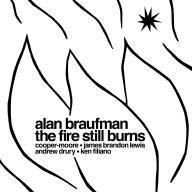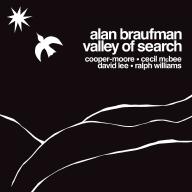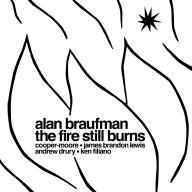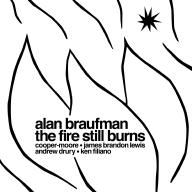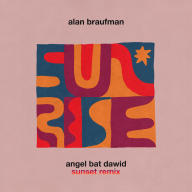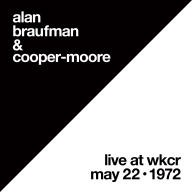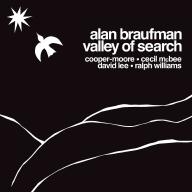Born in 1951 in Brooklyn, Braufman grew up on Long Island where he started playing clarinet at age eight. Switching to saxophone at age 13, he took classical lessons. However, it was hearing his mother play albums by Eric Dolphy, Charles Mingus, and John Coltrane that inspired his love of jazz. He began teaching himself how to improvise, picking out patterns and scales off recordings. As a teenager, he'd visit his sister in Manhattan and go to Slugs' Saloon where he was exposed to forward-thinking artists like Sun Ra, Pharoah Sanders, McCoy Tyner, and more. After high school, he attended Boston's Berklee College of Music where he first met pianist Cooper-Moore (aka Gene Ashton). While there, he took a job working the lights at the Jazz Workshop, where he met future collaborator bassist Cecil McBee, among others.
In 1973, Braufman relocated to New York City, along with Cooper-Moore and other former Berklee students, including saxophonist David S. Ware, bassist Chris Amberger, and drummer Marc Edwards. They set up residence in a large, four-story building on Canal Street in Lower Manhattan that worked as both a living and performance space. The building soon attracted musicians from across the city and developed into a key location of what would become known as the loft scene. It was out of this vibrant creative period that Braufman developed his landmark 1975 debut, Valley of Search, which found him drawing inspiration from artists like Don Cherry, John Coltrane, Ornette Coleman, and others. Released on the India Navigation label, the album was recorded live at the Canal Street building and featured the saxophonist along with Moore, bassist Cecil McBee, drummer David Lee, and percussionist Ralph Williams. Regarded as one of the key albums to emerge from the loft jazz era, it showcased the group's exploratory modal style and gained a cult following.
Braufman continued to expand his approach into the '80s, touring with the Psychedelic Furs, Philip Glass, Carla Bley, and others. He also dropped his last name, working for a time as Alan Michael. It was under this name that he released his sophomore album as leader, 1988's Lost in Asia. Released on the Passport Jazz label, it found him embracing a mix of jazz and psychedelic pop/rock influences, and featured contributions by guitarist Bill Frisell, bassist Mark Egan, and others. The similarly cross-pollinated As Daylight Fades arrived in 1995 and featured drummer Omar Hakim. It was also in the '90s that Braufman moved with his family to Salt Lake City, Utah where he continued to perform and teach.
In 2018, Braufman collaborated with his nephew, music executive Nabil Ayers, on remastering and reissuing the long out-of-print Valley of Search. To mark the release, Braufman embarked on a series of live shows playing the music from the album. In 2019, he joined Cooper-Moore for a performance at the Basilica Soundscape Festival in Hudson, New York. Also that year, he issued an archival live album he recorded with Moore at New York's WKCR in 1972. In August 2020, Braufman released The Fire Still Burns, his first studio album since the '90s. A spiritual follow-up to Valley of Search, it also featured Moore, tenor saxophonist James Brandon Lewis, bassist Ken Filiano, drummer Andrew Drury, and percussionist Michael Wimberly. ~ Matt Collar, Rovi
|
1
|
|
Morning Bazaar |
|
2
|
|
Sunrise |
|
3
|
|
Alone Again |


